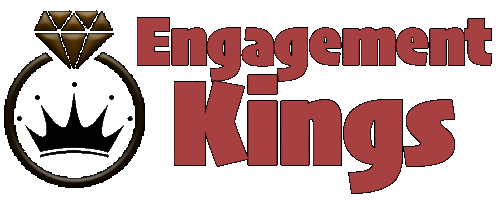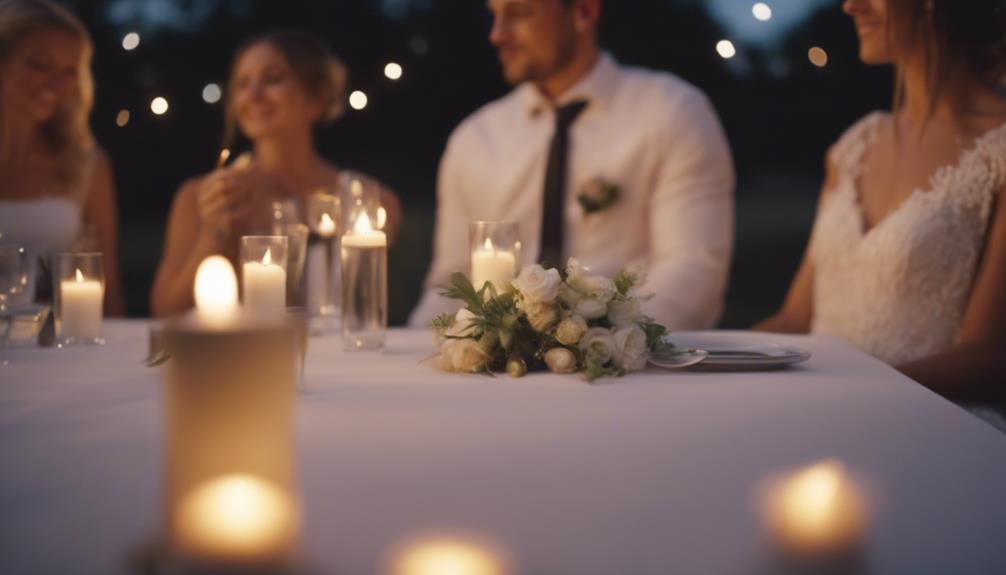A proposal is when you ask your partner to marry you, often presenting an engagement ring as a promise. It’s an intimate moment signaling a commitment to a future together. On the other hand, a wedding is the official ceremony where you exchange vows and legally unite as a married couple in front of witnesses. A proposal is personal and heartfelt, focusing on the promise, while a wedding is a public celebration of that promise, complete with rituals and festivities. To truly understand these stages and plan them beautifully, there’s more to explore.
Definition of a Proposal

How exactly does one define a proposal? A proposal is a significant moment when one partner asks the other to enter into an engagement and commit to marriage. This act usually involves presenting an engagement ring, symbolizing the promise to marry. For many couples, the proposal is marked by romantic gestures and, in some cultures, even includes asking for parental permission.
When you propose, you’re not just asking a question; you’re making a meaningful shift from dating to a committed engagement. This commitment signifies your intention to build a life together. It’s an exciting and emotional milestone that sets the foundation for future wedding plans. In fact, over 80% of couples marry within a year of their engagement.
The engagement ring itself, while not mandatory, often plays an essential role in this process. It serves as a tangible symbol of your promise and the upcoming marriage. The act of putting that ring on your partner’s finger solidifies your shared commitment and the journey you’re about to undertake together.
Ultimately, a proposal is the first formal step towards a lifelong partnership, setting the stage for the wedding and marriage that follow.
Definition of a Wedding
Once you’ve celebrated your engagement, the next significant milestone is the wedding, a ceremony that officially unites you and your partner in marriage. This event isn’t just a formality; it’s a legally binding commitment that marks the start of your life together as a married couple. The wedding ceremony is a vital moment where you exchange vows, pledging your dedication and love in front of witnesses.
Weddings can vary greatly based on cultural, religious, and personal preferences, but they often share common elements:
- Rituals and Traditions: These can include anything from a unity candle lighting to traditional dances, depending on your background.
- Legal Procedures: You’ll need a marriage license to make your union legally binding, providing you and your spouse with specific rights and responsibilities.
- Witnesses: Family and friends typically attend to support and witness your commitment to each other.
The wedding isn’t just a celebration but a formal declaration of your commitment, solidifying your partnership in a meaningful and legally recognized way.
Key Elements of a Proposal

When planning a proposal, you’ll want to focus on several key elements that make the moment special and memorable.
Start with the classic marriage proposal question: ‘Will you marry me?’ This simple yet profound question sets the tone for the mutual promise you’re about to make.
The engagement ring is another critical element. It symbolizes your commitment and the future you envision together. Choose a ring that reflects your partner’s style and the unique bond you share.
Adding a personal touch is essential. Consider incorporating elements that reflect your shared history as an engaged couple, whether it’s a cherished location, a favorite song, or a meaningful date.
Surprise is often a key component of a proposal. Think about how to create an unexpected yet heartfelt moment that will catch your partner off guard in the best way possible.
Key Elements of a Wedding
After the excitement of the proposal, the key elements of a wedding bring your commitment to life through a meaningful and celebratory ceremony. Wedding preparations begin once the couple gets engaged, marking the shift from an official engagement to planning the big day. These preparations involve several vital components that guarantee your wedding day is memorable and reflects your unique bond.
Key elements of a wedding include:
- Venue and Officiant: Choosing the perfect location and someone to officiate the ceremony are foundational steps. The venue sets the tone, while the officiant legally binds your marriage.
- Guest List and Invitations: Deciding who to invite and sending out invitations is essential. It guarantees that your loved ones are there to witness and celebrate your union.
- Attire and Rings: Selecting wedding attire and rings symbolizes your commitment. These items are often significant and reflect personal and cultural traditions.
These elements transform your initial proposal into a lasting celebration of love and partnership.
Timing and Significance

Understanding the timing and significance of both a proposal and a wedding helps clarify their distinct roles in a romantic relationship.
When you propose, you’re making the initial commitment to marry your partner, often marked by the pivotal question, ‘Will you marry me?’ and typically accompanied by an engagement ring. This moment signifies the beginning of your engagement, a period dedicated to planning your future wedding and solidifying your commitment to one another.
During the engagement, you and your partner have the opportunity to discuss your future, make important decisions, and prepare for the life you’ll share once married. The length of an engagement can vary widely, lasting anywhere from a few months to several years, depending on your personal circumstances and preferences.
The wedding itself is a formal ceremony that legally unites you and your partner. It’s a day filled with cultural or religious rituals, vows, and celebrations, representing the culmination of your engagement and the start of your married life.
While the proposal is an intimate expression of intent to marry, the wedding is a public affirmation of that commitment, solidifying your partnership in the eyes of your loved ones and society.
Conclusion
In your romantic journey, the proposal and the wedding each hold unique significance.
The proposal is your intimate, heartfelt promise to marry, while the wedding is your public celebration of that commitment.
By understanding these differences, you can fully appreciate and cherish each moment.
So, as you take these steps together, remember that both milestones are essential in weaving the beautiful tapestry of your love story.
Celebrate them with all your heart.



